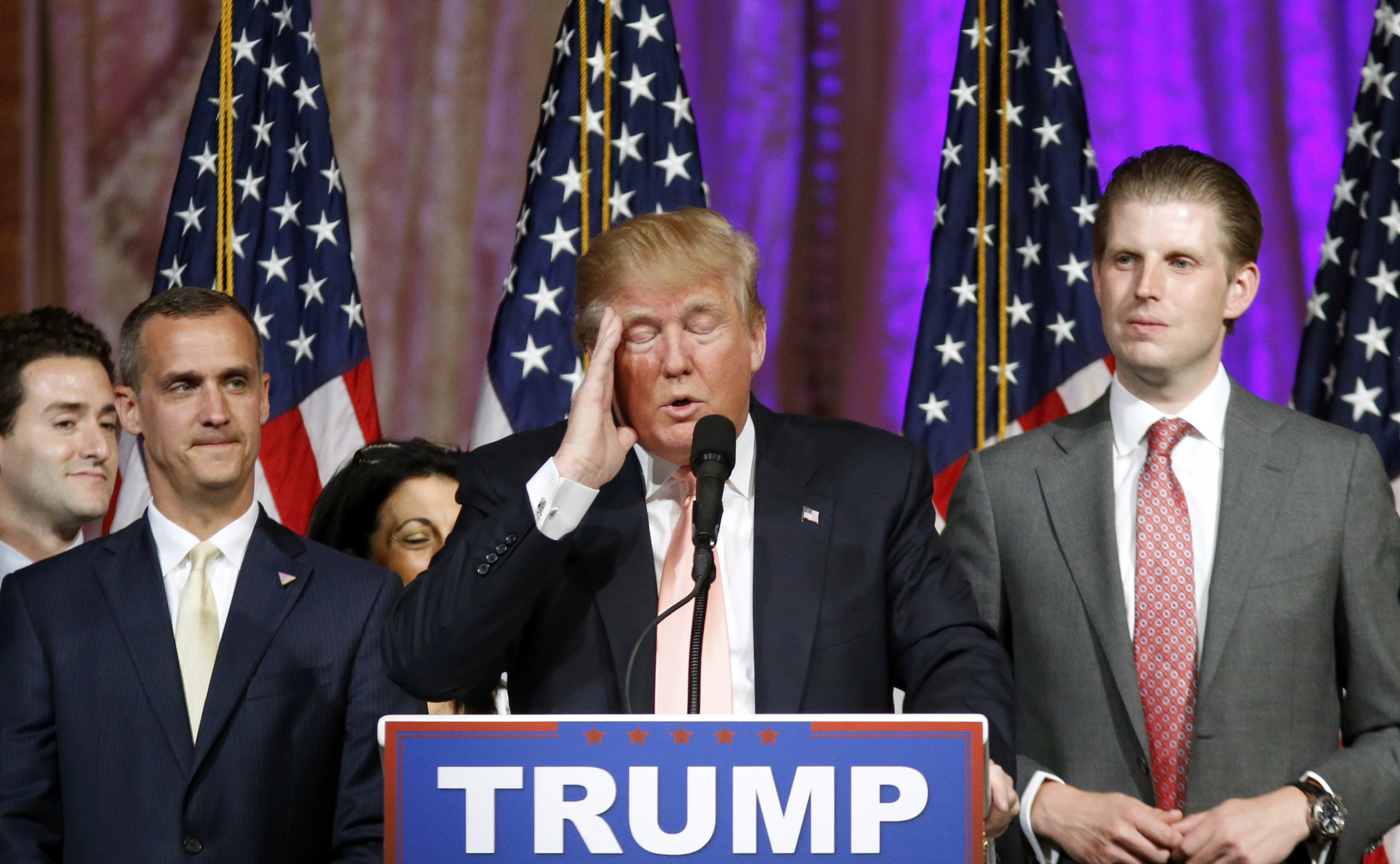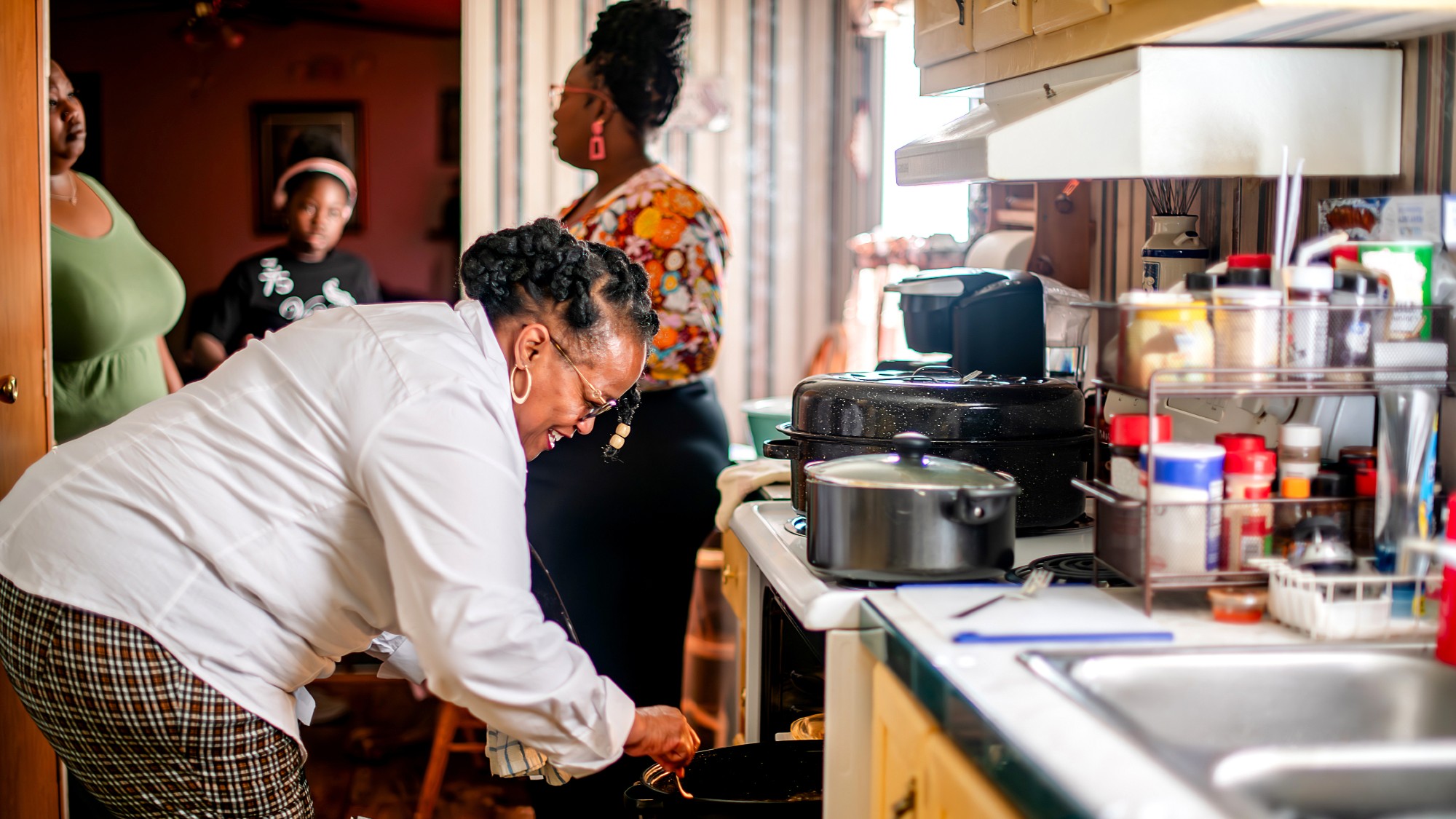Donald Trump has a delegate problem. And it's not the one you think.
Inside the stealth campaign to sabotage Trump at the convention


With just 44 percent of the vote in Ohio on Tuesday night, genial John Kasich may have roadblocked Donald Trump's path to an uncontested Republican nomination. Now, the Republican frontrunner might not get the 1,237 delegates he needs before July's GOP convention in Cleveland.
Those numbers are tough. But even tougher, for Trump: identifying and seating the actual delegates themselves. And Trump, by disrespecting the state Republican parties in the states he's won, smacked a huge target onto the backs of those valet-chosen silk suits he wears.
Trump has been inattentive to the mechanics of voter identification and field persuasion. His brand of politics has allowed him to run roughshod over his opponents by sheer force of personality. He has spit in the face of the national party and has publicly cast aspersions on state parties, too, accusing them of stacking debate audiences with donors to favor his opponents. This plays well with his angry electorate, but it comes with a huge price: In order to make sure that his delegates remain loyal, he needs the state parties to cooperate with him.
The Week
Escape your echo chamber. Get the facts behind the news, plus analysis from multiple perspectives.

Sign up for The Week's Free Newsletters
From our morning news briefing to a weekly Good News Newsletter, get the best of The Week delivered directly to your inbox.
From our morning news briefing to a weekly Good News Newsletter, get the best of The Week delivered directly to your inbox.
"I warned them," a state GOP chairman messaged me last night. "It may be too late."
Instead of calling all 168 members of the Republican National Committee last year or forging at least quiet alliances with state chairs, Trump's "campaign continually harassed and cajoled dozens of state chairs into staying silent, holding the loss of business relationships or donors over their heads," the chair said.
Two other GOP chairs confirmed this assessment in separate messages to me last night.
For weeks now, Republican operatives who oppose Trump have begun an effort to identify the men and women in each state who will likely be slated as Trump's delegates to the nomination. Sen. Ted Cruz's campaign has its own state-by-state delegate identification and selection effort. So far, state chairs say they've heard next to nothing from Trump's campaign.
A free daily email with the biggest news stories of the day – and the best features from TheWeek.com
This matters in states as small as North Dakota and as large as Michigan.
Last Tuesday, Trump won 36.5 percent of the vote in Michigan, earning himself 25 delegates at the national convention. But the identity of those delegates is key. And they're not yet known, because Michigan selects its national convention delegates at a state caucus on April 8 from a pool of at least several hundred Michigan Republicans.
Though those delegates will be bound by national and state rules to support Trump through the first ballot at the convention, their identities might be the difference between a first ballot win and a complete loss — the election of someone else.
It's entirely plausible that a state could seat delegates pledged to support Donald Trump who have open affiliations with other candidates. The attendees at these state caucuses and conventions can elect whomever they want. This happens all the time. In 2012, according to a great explainer by Frontloader, folks who disliked Mitt Romney not only messed with the number of pledged delegates he was to seat, but they also worked to install their own partisans as his delegates. They did this not to mess him up at the convention — his victory might have been a foregone conclusion. But conventions are big, fun parties. Paid, expensive parties. You can understand why rival factions within a state party would want to reward as many members of their own tribe as possible.
The RNC's rules committee has tried to address this by tightening the rules governing the allocation of pledged delegates: The proportion of pledged delegates actually sent to the convention must align with the proportion actually won by a candidate in states that don't give their winners all of their delegates.
But states still get a lot of latitude. That's why smart (and devious) Republican operatives are secretly working to influence the delegate selection process. They want as many of their own supporters as possible to identify as pledged Trump delegates. That way, those men and women will fall to their (real) default choice if Trump doesn't win a majority of delegates on the first ballot.
Sabotage is not out of the question either. What happens if a pledged delegate decides not to show up for the first ballot? He or she might lose their status — but Trump doesn't automatically get that vote.
Manipulating the delegate selection process won't be enough to propel Ted Cruz or John Kasich to the nomination by itself. But a few persuadable delegates in the right states at the right moment could tip the ballot in their favor down the line.
Marc Ambinder is TheWeek.com's editor-at-large. He is the author, with D.B. Grady, of The Command and Deep State: Inside the Government Secrecy Industry. Marc is also a contributing editor for The Atlantic and GQ. Formerly, he served as White House correspondent for National Journal, chief political consultant for CBS News, and politics editor at The Atlantic. Marc is a 2001 graduate of Harvard. He is married to Michael Park, a corporate strategy consultant, and lives in Los Angeles.
-
 7 bars with comforting cocktails and great hospitality
7 bars with comforting cocktails and great hospitalitythe week recommends Winter is a fine time for going out and drinking up
-
 7 recipes that meet you wherever you are during winter
7 recipes that meet you wherever you are during winterthe week recommends Low-key January and decadent holiday eating are all accounted for
-
 Nine best TV shows of the year
Nine best TV shows of the yearThe Week Recommends From Adolescence to Amandaland
-
 Bari Weiss’ ‘60 Minutes’ scandal is about more than one report
Bari Weiss’ ‘60 Minutes’ scandal is about more than one reportIN THE SPOTLIGHT By blocking an approved segment on a controversial prison holding US deportees in El Salvador, the editor-in-chief of CBS News has become the main story
-
 Has Zohran Mamdani shown the Democrats how to win again?
Has Zohran Mamdani shown the Democrats how to win again?Today’s Big Question New York City mayoral election touted as victory for left-wing populists but moderate centrist wins elsewhere present more complex path for Democratic Party
-
 Millions turn out for anti-Trump ‘No Kings’ rallies
Millions turn out for anti-Trump ‘No Kings’ ralliesSpeed Read An estimated 7 million people participated, 2 million more than at the first ‘No Kings’ protest in June
-
 Ghislaine Maxwell: angling for a Trump pardon
Ghislaine Maxwell: angling for a Trump pardonTalking Point Convicted sex trafficker's testimony could shed new light on president's links to Jeffrey Epstein
-
 The last words and final moments of 40 presidents
The last words and final moments of 40 presidentsThe Explainer Some are eloquent quotes worthy of the holders of the highest office in the nation, and others... aren't
-
 The JFK files: the truth at last?
The JFK files: the truth at last?In The Spotlight More than 64,000 previously classified documents relating the 1963 assassination of John F. Kennedy have been released by the Trump administration
-
 'Seriously, not literally': how should the world take Donald Trump?
'Seriously, not literally': how should the world take Donald Trump?Today's big question White House rhetoric and reality look likely to become increasingly blurred
-
 Will Trump's 'madman' strategy pay off?
Will Trump's 'madman' strategy pay off?Today's Big Question Incoming US president likes to seem unpredictable but, this time round, world leaders could be wise to his playbook
